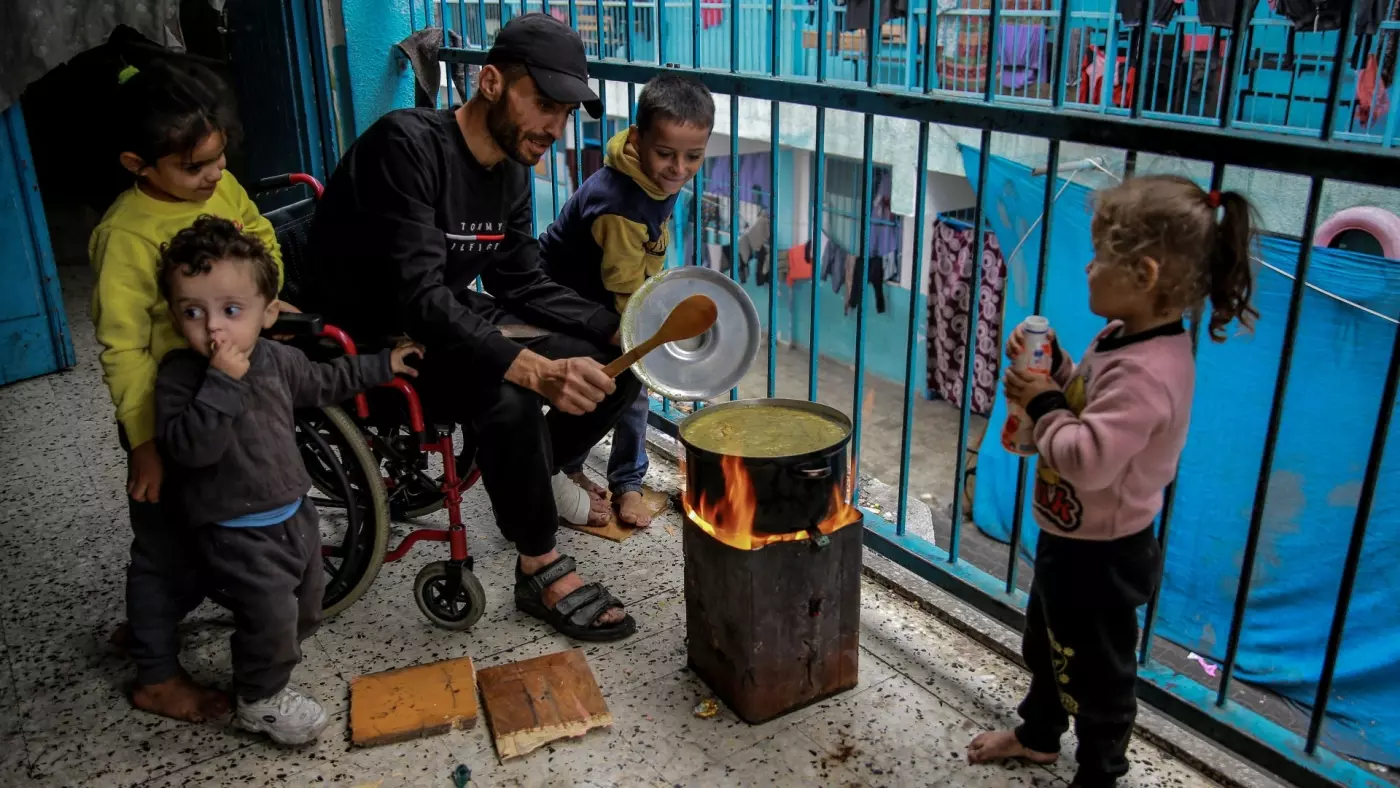Lack of medicine, water and food leading to rise in cases of diarrhoeal diseases among children in besieged enclave

More Palestinians could die from disease than from Israeli bombardment in the besieged Gaza Strip if the health system remains in its current state, a World Health Organisation spokesperson said on Tuesday.
More than 15,000 Palestinians, over half of whom are women and children, have been killed by Israel’s military operations in Gaza, which were launched after Hamas’s surprise 7 October attack on southern Israeli communities killed around 1,200 Israelis, mainly civilians.
“Eventually we will see more people dying from disease than we are even seeing from the bombardment if we are not able to put back this health system,” the WHO’s Margaret Harris told a United Nations briefing in Geneva.
She expressed concerns about an uptick in infectious disease outbreaks, including diarrhoeal diseases.
“[There are] no medicines, no vaccination activities, no access to safe water and hygiene and no food. We saw a very high number of cases of diarrhoea among infants,” Harris said, citing a UN report on the living conditions of displaced Palestinians in northern Gaza.
Earlier this month, the WHO said that over 70,000 cases of acute respiratory infections and over 44,000 cases of diarrhoea had been recorded in the besieged enclave.
The UN agency for Palestinian refugees, Unrwa, has previously warned that the lack of drinking water in Gaza has forced people into drinking brackish water, raising concern about the spread of waterborne diseases.
Last week, the UN Office for the Coordination of Humanitarian Affairs (OCHA) said there was one shower unit for every 700 people and a single toilet for every 150 people at UN facilities in the strip.
Harris said on Tuesday that the collapse of al-Shifa Hospital – the largest medical facility in Gaza – was a “tragedy”, adding that some of its medical staff had been detained by Israeli forces during a WHO evacuation operation.
James Elder, a spokesperson from the UN Children’s Agency in Gaza, told reporters that hospitals in the enclave were full of children wounded by Israeli bombings and suffering from gastroenteritis due to drinking dirty water.
“I met a lot of parents… They know exactly what their children need. They don’t have access to safe water and it’s crippling them,” he said.
On Monday, Qatar announced that mediators had reached an agreement to extend a four-day truce between Israel and Hamas by an additional two days, offering Palestinians in Gaza another brief respite from seven weeks of conflict.
UN Secretary-General Antonio Guterres described the truce extension as a “a glimpse of hope and humanity,” but warned it was not enough time to meet the aid needs of people in Gaza.
“I strongly hope that this will enable us to increase even more the humanitarian aid to the people in Gaza that (are) suffering so much – knowing that even with that additional amount of time, it will be impossible to satisfy all the dramatic needs of the population,” Guterres told reporters on Monday.
Since the truce began, Palestinian groups have released 69 Israeli women and children being held prisoner in Gaza, while Israeli authorities have released 150 Palestinian detainees.
